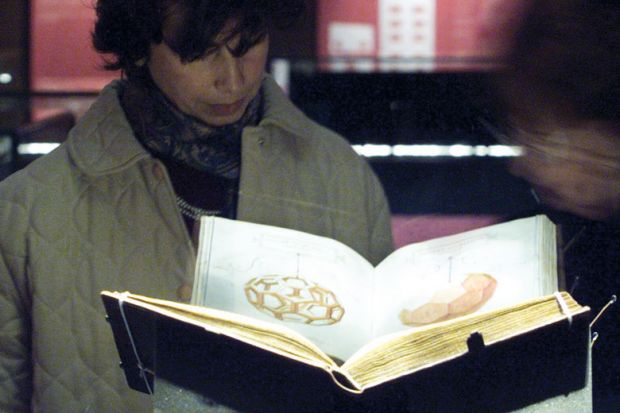Mathematics degrees in the UK are being “unnecessarily politicised” because of expectations that lecturers decolonise the curriculum, leading academics claim.
A letter shared with Times Higher Education accuses the Quality Assurance Agency (QAA) of trying to mandate a “narrowly skewed perspective on the history of mathematics” via its new subject benchmark instead of giving academics the freedom to design courses as they see fit.
The benchmark statement for mathematics, statistics and operational research (MSOR) – a document intended to establish a common understanding of what students can expect from a UK degree in this area – has grown by 50 per cent since 2019 to include sections on equality, diversity, accessibility and inclusion as well as sustainability and employment.
The proposed guidance – which has been put out for consultation – states that “the curriculum should present a multicultural and decolonised view of MSOR, informed by the student voice”.
It adds that students “should be made aware of problematic issues in the development of the MSOR content they are being taught”, listing examples such as how some pioneers of statistics supported eugenics, and mathematicians’ connections to the slave trade, racism or Nazism.
Twelve professors, eight of whom are fellows of the Royal Society, have signed the letter objecting to the changes, among them Sir John Ball, professor of mathematics at Heriot-Watt University; Philip Dawid, emeritus professor of statistics of the University of Cambridge; and Mary Rees, emeritus professor of mathematics at the University of Liverpool.
Fellow signatory John Armstrong, senior lecturer in financial mathematics, probability and statistics at King’s College London, said much of what is suggested in the document “might be very reasonable”, but the group objected to the idea that it should be imposed “on absolutely every single maths course to cover these same things”.
“It seems to get rid of diversity. [We feel] it would be beneficial to have lots of different maths courses with lots of different emphases, with different people teaching with different motivations,” he said.
The letter states that the signatories “abhor racism, but one can abhor racism without subscribing to the theory of decoloniality”.
And while decolonisation might have some relevance when teaching the history of mathematics, it has little bearing on other areas of the curriculum, the letter argues.
“We struggle to imagine what it would mean to decolonise, for example, a course on the geometry of surfaces. For the most part, the concept of decolonisation is irrelevant to university mathematics, and our students know this. If we engage in obviously tokenistic anti-racism efforts we will simply be sending a signal that we do not take racism seriously,” they write.
Dr Armstrong said he felt the benchmark should be concerned only with what the basics of a mathematical curriculum might be, and he expressed the group’s concern that a centralised description of content “reduces the academic freedom of mathematicians to deliver the courses they wish to deliver”.
“These things may be very virtuous and interesting, but they are not mathematics, they are not our expertise; and mathematicians really want to talk to our students about the mathematics that fascinates them,” he added.
A QAA spokeswoman said the benchmark statement was created by an expert advisory group “to ensure the resulting documents will be of current value to the discipline communities”.
For the latest iteration of the statements, she explained, advisory groups were encouraged to “think about how they could embed inclusive practice, sustainability, the needs of disabled students and enterprise education into their curriculum”.
Register to continue
Why register?
- Registration is free and only takes a moment
- Once registered, you can read 3 articles a month
- Sign up for our newsletter
Subscribe
Or subscribe for unlimited access to:
- Unlimited access to news, views, insights & reviews
- Digital editions
- Digital access to THE’s university and college rankings analysis
Already registered or a current subscriber? Login








